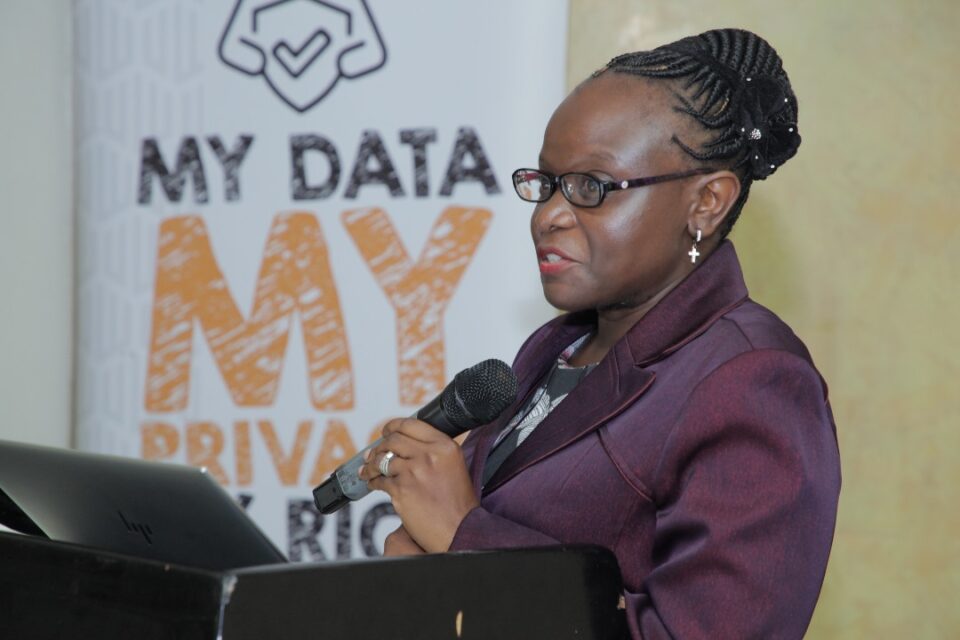Unwanted Witness ICT Webinar Sheds Light on Uganda’s Digital Divide and the Need for Greater ICT Investment and Digital Rights Safeguards

By Leticia Luweze and Chris Kalema
On Tuesday, June 13, 2023, Unwanted Witness organized a thought-provoking webinar on “Investment in ICT as an engine for the enjoyment of digital rights in Uganda.” The webinar aimed to gather recommendations that would lead to increased budget allocation for the Ministry of ICT and the ICT sector in the upcoming budget reading for the FY 2023/2024. With over 60 participants, including key stakeholders and sector heads, the event provided a platform for candid discussions on the current state of Uganda’s ICT sector, budget allocations, and their influence on the enjoyment of digital rights.
The Government of Uganda recognizes the crucial role of ICT in driving socio-economic transformation and has articulated a bold vision for the country’s digital future through the 2040 Digital Vision and National Development Plan 3. This vision seeks to leverage ICT’s transformative power to improve the lives of Ugandans, enhance economic competitiveness, and promote good governance and human rights protection.
However, Uganda faces significant challenges in bridging the digital divide and ensuring the protection of digital rights. The country has a low number of social media users, representing only 4.3% of the population, and limited internet penetration at 24.6%. Compared to neighbouring countries like Rwanda and Kenya, Uganda’s budget allocation for the ICT sector is relatively low. In the financial year of 2022/2023, only 0.26% of the general budget was allocated to the ICT sector, and the projected allocation for the upcoming year is just 0.34%.
These limitations raise concerns about the hindrance to the enjoyment of digital rights by Ugandan citizens and the potential impact on good governance and human rights. Lucrezia Biteete, the IDEA project manager at GIZ Uganda and AU-EU D4D Hub – emphasized the crucial role of civil society in amplifying the voices of the people and ensuring that ICT investment is human-centric. She highlighted the importance of placing the needs and rights of human beings at the centre of the process, as promoted by the European Union.
While Uganda has shown a proactive commitment to enhancing and investing in ICT, with notable initiatives led by the Ministry of ICT and National Guidance, challenges remain. Dr Martin Mubangizi, acting head of the UN Global Pulse Lab Kampala, highlighted the gap between government initiatives and citizens’ awareness and interaction with these instruments. Ms Dorothy Mukasa, the Executive Director of Unwanted Witness Uganda, expressed concerns about conflicting actions and laws that undermine previous initiatives, such as Vision 2040, which positions ICT as an engine for development.
Drawing inspiration from Kenya, a leader in driving financial inclusion through digital finance solutions, Uganda can learn from its neighbour’s success in leveraging private sector involvement to drive innovation and achieve societal and economic impact, despite challenges with internet connectivity. Kenya’s multistakeholder approach, as exemplified by the Kenya ICT Action Network (KICTANet), has been instrumental in advocating for meaningful and affordable broadband connectivity.
To realize Uganda’s vision for a digital future, the country needs to prioritize the development of a robust digital infrastructure, including broadband connectivity, digital literacy, and e-government services. This requires significant investment in ICT infrastructure and human resource development, as well as the creation of an enabling policy and regulatory environment that promotes innovation, competition, digital inclusion, and digital rights.
As Uganda prepares for the budget reading on June 15, 2023, it is essential for stakeholders to recognize the importance of increased investment in the ICT sector. By allocating more resources and adopting a human-centric approach, Uganda can bridge the digital divide, protect digital rights, and harness the transformative power of ICT for the benefit of its people and the country’s overall development.
In conclusion, the webinar on investment in ICT as an engine for the enjoyment of digital rights in Uganda shed light on the pressing need for greater ICT investment and digital rights protection. Uganda’s vision for a digital future can only be realized through increased budget allocation, the development of robust digital infrastructure, and the creation of an enabling policy and regulatory environment. By learning from successful examples in neighbouring countries and engaging civil society, Uganda can build a digital Uganda that prioritizes human-centric development, bridges the digital divide, and safeguards digital rights for all its citizens.
Watch the webinar recording 🔗 https://www.youtube.com/watch?v=GxqBX_CNf_o&pp=ygUXdW53YW50ZWQgd2l0bmVzcyB1Z2FuZGE%3D




